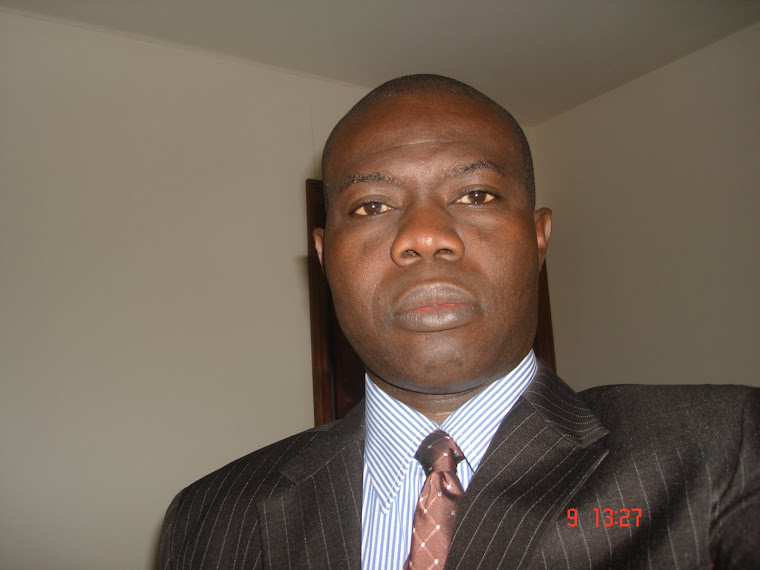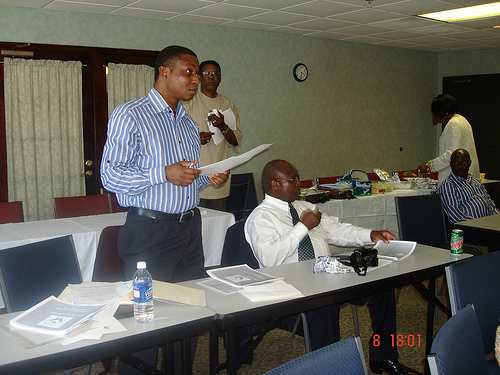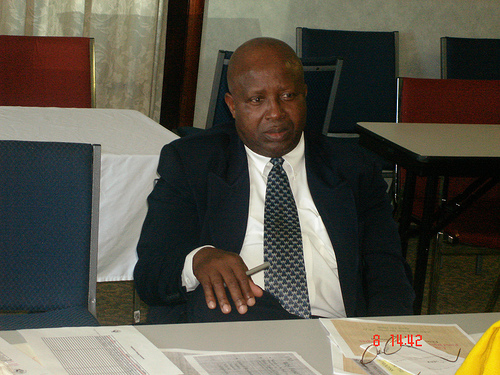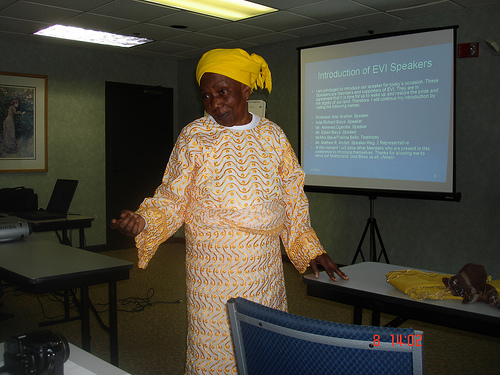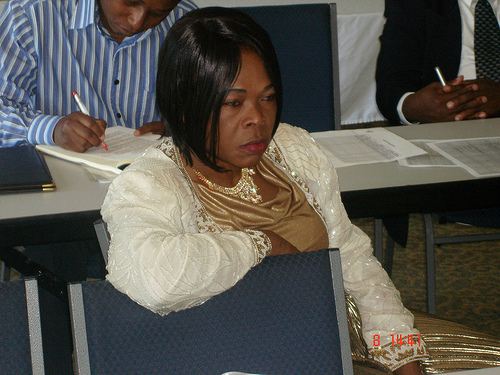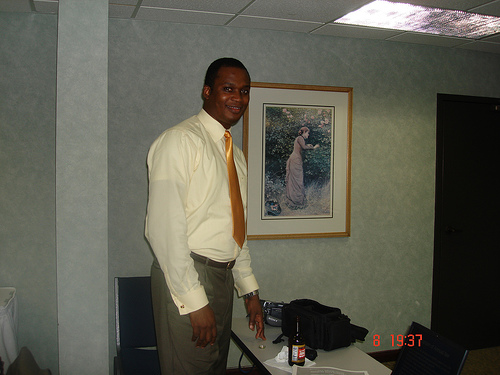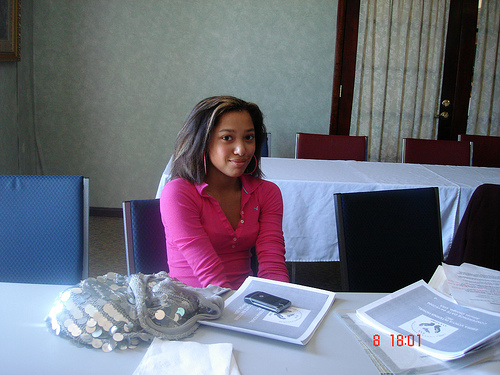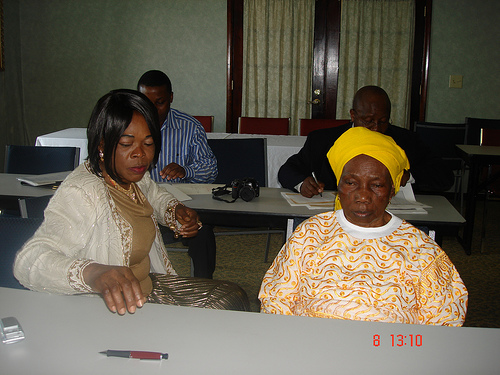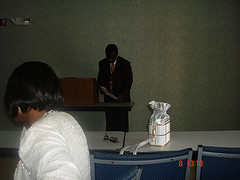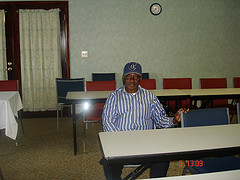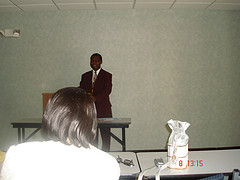Posted by: Dr. Joseph Ozigis Akomodi
Written by: Jimoh Boyi
Andayi,
Compliments of the season. I write to express my profound gratitude to all the EVI members, especially the executives, home-based and international ones.
The deliverance of EVI relief packages to the affected victims of some violent riots at home is commendable one and once again, a very big thank you to home-base guys for the time and commitments.
The issue raised by Brother Mathew (Murphy) concerning the fate of most of our brothers (ebirasovietniks) in the former Soviet regions is a very disturbing one. As at present, both socio-political and economic situations in these regions are in transient periods, and are as such, most Africans, Asians and Arabs here ( myself, I am on study leave in Moscow) are involve in menial (hand –to- mouth) jobs that have less prospects in future, especially, as one gets older. Coupled with the above is rise in racial hatred, which is being covertly supported by politicians for political gains.
From my personal assessments, if nothing is done to persuade, assist or encourage most of our brothers these regions to either relocate to west (UK, France etc)/ USA or to go home (back to Nigeria) in the next 3 to 5 years, it will be disastrous for them to stay put as age and hope will be weighing them down. I know and have respect for the views of most of them with family members and other reasons. But the fact is that a Blackman in his late 30s and early 40s doing menial jobs/ petty trading in a foreign society that is highly saturated with skin heads, socio-economic crisis and political instabilities will be better off either at home or in some other countries where those vices are less rampant.
I therefore plead with EVI as an organization to look into whatever can be done to make our brothers, especially, those willing to leave, to relocate and at the same time to persuade the rest to do think otherwise.
Once again, Thanks for your time and commitments
B. Jimoh
Friday, January 19, 2007
Ebira Sovietnicks in the Former USSR
Posted by
Dr. Joseph Ozigis Akomodi
at
Friday, January 19, 2007
2
comments
![]()
![]()
Wednesday, January 17, 2007
Report on the Presentation of Relief Materials to the Victim of Ihima mayhem by EVI.
Posted by: Dr Joseph Ozigis AKomodi
Submitted by: Mallam Zakkariyawu
REPORT ON THE PRESENTATION OF RELIEF MATERIALS TO THE VICTIM OF IHIMA MAYHEM BY EBIRA VONYAN INTERNATIONAL (EVI)
FIRST MEETING
The first meeting on the subject matter by the EVI Nigeria based members was held on December 2nd, 2006 at Dr FATTY’s residence (Obehira). In attendance were: Zakariyya Umar, Malik Suley & Family, Yakub Ochetengwun, Dr Fatty, Hajia Rabiat. The objective of the meeting was to redeem pledges by Nigeria based EVI members, discuss and map out strategies for the effective distribution of the Relief materials, Items to the intended recipients. Most of the home based redeemed their pledges those who were not present were called and they promised to remit their pledges to the Bank. The following activities were consequently agreed upon to be carried out the next day:
- Gather Donations, Review the List of Victims and Types of Relief materials to buy.
- Visit the newly installed OHI of IHIMA to inform him of our intention and when we intend to convene for the handover of the Gifts items
- Fix a date for the formal presentation of the Gift items
- Pay a sight seeing visit to the site of the Mayhem
The total donations stands at N336,000.00K comprising of $2000.00(N256,000.00) – from EVI members abroad; N50,000.00 from Malik/Zakariyya; N10,000.00 from Yakub Ochetengwun, N20,000.00 from Usman Anibasa(promised to remit to the bank).
We reviewed the list of 31 victims we had and decided that we obtain a more comprehensive list from the new OHI of IHIMA
Various suggestions were made with regards to the kind of items to be purchased for presentation and at the end we unanimously agreed to buy Bags of Rice and Clothing material.
Zakariyya offered to contact one of the textile factories in Lagos for the clothing materials and Hajia Rabiat was to arrange for the purchase of 45 bags of rice.
We reported to the OHI of IHIMA palace very early in the morning of the next day. Unfortunate, as at the time we got there, OHI was not at home. We were directed to meet him where he went and we immediately proceeded there.
He was full of praises for the EVI and what we stand for and expressed hope that such efforts will remould, re-orientate and transform the minds of most of our present day youths. He promised to relate the message to his kingmakers and the representatives of the two clans involved. He also promised to get a comprehensive list of the victims for us from the
After all considerations, the Gift presentation was fixed for around Christmas/.Eeidil Kabir period.
We made a site seeing visit to Ihima and level of destruction we saw was unimaginable.
RELIEF MATERIAL DISTRIBUTION MEETING
Presentation of the Relief materials around the Christmas/Eidil Kabir could not hold because we could not put up all logistics together as a result of the fuel scarcity that started exactly around the time. However, Yakub Ochetengwun was still able to travel home and together with other members at home we had conference call meeting with Malik and myself in Lagos and rescheduled another meeting for Friday, 5th January 2007.
The meeting finally held on Friday, 5th January, 2007. In attendance were Zakariyya Umar, Magistrate Ajinomo, Dr Fatty, Hajia Rabiat, Malik Suley(via phone conference)
We explored the possibility of contacting the victims directly without passing through the clan leaders but we were strongly advised against it by the new OHI of IHIMA to avoid further problems.
The list of Victims from both sides submitted by OHI was reviewed and the summary is as follows: EMANI CLAN(14 death, 128 houses/properties destroyed); OHONWA CLAN(10 death, 215 houses/properties destroyed).
The above list was far above our projection of 40-45 families. We therefore decided to discuss the best distribution method with OHI in a meeting scheduled for the next day. We also agreed to do the final relief material distribution Ceremony on Sunday, 7th January 2007 by 4:00PM.
Our effort to get the local Radio Station to cover the event failed because their charges of N70,000.00 for logistics was too much and was not budgeted for.
We therefore decided to do a video coverage and later pass it on to the local Television Station to be aired.
We later agreed with OHI during our meeting with him to share all the relief materials equally for the two affected clans. He(OHI) promised to send to the two clan leaders but also advised us to personally contact the two leaders and inform them.
We then immediately left to inform the OBOBAYIN of IHIMA(Emani). The Obobayin thanked and welcomed us and promised to send some representatives to attend. He appealed that we advise our politicians to work together and present one candidate so that Anebirra can produce the next Governor for Kogi State. He wondered why this is so difficult to achieve among our politicians if they are truly vying for the position to serve the people.
The next point of call was to OBOBAYIN OF OHONWA. There we met him with all his king makers and other clan leaders. After our message, they thanked us for the efforts and the good gesture but expressed reservations about the VENUE which was originally scheduled to be in front of OHI of IHIMA’s compound. They insisted the venue is not completely safe for the two sides to meet and suggested ST PETERS CHURCH, IKUEHI. We promised them to discuss it and get back to them. The Obobayin of Ohonwa later prayed and thanked EVI for all the efforts.
At the end, we agreed to shift the venue to ST PETERS CHURCH, IKUEHI for the benefit of doubts. The change of Venue was also communicated to the EMANI side, of course citing other reasons for the change.
On the presentation day, we started by covering some site of the mayhems from 12 noon and ended with the presentation proper. The video cassette in VHS format will be converted to .avi or mpeg to enable direct viewing in our computers/laptops. These should be concluded within the next 2-3 days and shall be emailed to all immediately.
Present at the occasions were: The OHI of IHIMA; The Chairman, Ihima Welfare Association; The Chairman, Ihima King Makers, Representatives of both Emani and Ohonwa Clans, The Chairman, Okehi Local Government etc.
The Ebirra Peace Project representative also attended briefly on invitation from Justice Ajinomo. The video will reveal details of the presentation ceremony. The relief material was presented on behalf of EVI by Justice Ajinomo. The EVI message was also summarized in our mother’s tongue with a promise to make copies available to all.
In conclusion, the occasion was a very huge success. Both sides were full of praises and prayers for EVI. The Ihima Welfare Association Chairman, who received the Relief materials on behalf of the two sides, was also full of appreciations. The OHI later shared the Relief materials publicly as follows based on EVI advise:
- Emani Clan – 20 Bags of Rice, 20 pieces of Cloths
- Ohonwa Clan – 20 Bags of Rice, 20 pieces of cloths
- Other Clan members whose properties were affected – 5 bags of Rice
The report will not be complete without recognizing the commitment, sacrifices, selfless and passionate service of the EVI team that made this a reality. The Regional Coordinator – Ya’akub Ochetengwun have had to travel home at least twice to ensure the success of this exercise, Justice Ajinomo offered himself fully and his Vehicles for the cause, His maturity and handling of issues very superb. Malik was also available fully where possible and on phone (conference call) where not available advising and offering suggestions. Dr Fatty was very wonderful during the entire exercise. Her organizational ability and follow up on issues are quite commendable. Hajia Rabi is another very mature and wonderful woman and a pride to EVI. Her vote of thanks on behalf of EVI as you will see on video speaks volume.
Although, Usman Anibasa was not able to make it to the presentation as he was away in SAUDI ARABIA for this year Hajj, he called directly from Saudi to offer suggestions and prayers.
Let me use this opportunity to say a big congratulation to Usman Anibasa for fulfilling one of the major pillars of ISLAM and pray that ALLAH accept the hajj as an act of worship.
I see a HOPE.
Statement of Account
Donations | Naira |
EVI Abroad(Donation = $2000@128) | 256,000.00 |
Home Based Donations | 80,000.00 |
Total | 336,000.00 |
Expenditure | |
45 bags of Rice@5400 each | 243,000.00 |
Transportation and Labour on Rice | 5,000.00 |
40 NICHEMTEX CLOTHING MATERIALS@ 1500 each | 60,000.00 |
Taxi fare from Ikorodu(Textile Factory) to Ikeja | 2,500.00 |
Sticker Printing Cost | 4,000.00 |
Video Camera Rent | 1,500.00 |
Video Coverage Assistants | 2,500.00 |
Cloth Nylone wrapper@50/yard - 20 yards | 1,000.00 |
Fueling and Transportations at home | 4,000.00 |
Fueling To and from Lagos | 9,000.00 |
Total | 332,500.00 |
Balance | 3,500.00 |
VHS conversion and airing of the event by NTA | ? |
Posted by
Dr. Joseph Ozigis Akomodi
at
Wednesday, January 17, 2007
5
comments
![]()
![]()
Monday, January 01, 2007
THE EBIRA-SOVIETNIKS AND THE CHALLENGES OF LIFE IN THE EX-USSR

For ten years, 1981-1991, there was a steady rise in their numbers. They were the beneficiaries of a contractual agreement, trained at the tertiary institutions of the host country. They studied hard to earn their PhDs or diplomas in medicine, engineering, economics, linguistics and other specialties. Upon graduation, many have gone back home, some have opted to travel to other parts of the world or stayed behind in the host country. Others failed to graduate, returned home, stayed behind or gone to overseas. No one knows exactly how many there are. Conservative estimate put their number at about a hundred. They are the Ebira-sovietniks.
The Ebira-sovietniks who went home upon graduation--probably about 30 percent-- are making their mark in the academia, the medical, engineering and other professions. Those who failed to graduate before heading home have enrolled and did so at home upon arrival. To both group of returnees, readjustment and settling down was hard. The vacancy sections of national dailies were perused with gusto, countless applications for work were written and resumés sent. Journeys were undertaken as follow-ups. The compulsory one-year National Youth Service Corp provided respite to most returnees enabling them to practise their skills and reintegration back into the society. Some lucky ones were retained as employees at the place or institution where they served.
Others who opted upon graduation or before it to other parts of the world especially the west constitute another 30 percent. Most gained entrance via the US or the Canadian equivalent of Green Card Lottery programmes, others through visitors’ visas that were then converted on arrival into residencies. Whichever way the entrance was secured, readjustment and settling down was also hard. It required doing the so-called survival jobs, retraining and integration in the new society.
The third group of Ebira-sovietniks are the hangers-on, those--about 38 percent-- who stayed behind after or before graduation in the ex-Soviet Union.
Most of the Africans in the Soviet Union in the early nineties were students and Anebira owe their being there, in large part, to Ajaokuta steel company. Shortly before the collapse of the Soviet Union in 1991 and immediately afterwards, a wave of hustlers, “transit guys” began entering the country. Mainly from Nigeria, many were relations or friends of students already in the USSR. Others paid to facilitators to get taken there. All the “transit guys” have one thing in common. They were using the country as a transit camp to get the necessary travel documents to continue the onward journey to the western countries. Some succeeded. Others who could not were left to their own devices and the growing network of criminal gangs to cope. They became hawkers: selling shoes, wears and illegal drugs. Of “the transit guys”, only one Anebira has been identified and she now lives in Holland.
I recently returned from Kiev, capital of the Ukraine, after a thirteen-year absence. I was amazed at the extent of the transformation. There were banners everywhere in the crowded city advertising everything from mobile phone providers, PCs and latest Jeeps to fast food joints. There were the trappings of modernity and the Ukraine is revelling in its consciousness as a democratising and independent country with eyes firmly fixed on joining NATO and the European Union. Five political parties are represented in the Verhovna Rada, the Ukrainian parliament, out of the forty-five that contested the parliamentary elections on the 26 March 2006. Other parties did not cross the 3 percent threshold imposed by the country’s electoral laws.
One of the main causes of disquiet amongst the African community in Kiev is the rise of xenophobic and nationalist parties like the Ukrainian Conservative party and the Freedom party. Then there are also the Skinheads who are inspired by the racist rhetoric emanating from the xenophobic and nationalistic politicians like Prof. Georgy Shchokin and Oleh Tyahnybok of the Ukrainian Conservative party and the Freedom party respectively. The Skinheads are young people with skin-deep haircuts, “omolo”. Fans of punk, rock music and heavy metal, their standard dress comprises of jackets, jeans and boots. They are usually violently aggressive. And they are found all over the world in various political stripes ranging from the far right neo-Nazi, racists to the far left extremists. Estimates from the human rights organisation put their number worldwide at about 70,000 of which 50,000 are believed to be in Russia alone.
It was easy to see the need for apprehension amongst the African community in Kiev. In the summer of 2006, Silavka, a popular bazaar-- where many Africans owned shops selling articles such as used car radios, mobile phones, wears and shoes-- was torched by arsonists suspected to be skinheads. On the 25th October 2006, few days after my arrival, skinheads attacked Dr. Godknows Mievi, a Nigerian from Bayelsa state with knife at the back in the spinal cord and died near the metro “Pozniyaki”. He had a PhD and was survived by an ex-wife and a son. Dr. Godknows was 44. According to Dr. Johnson Aniki, 45, the murder was the first of its kind to a Nigerian in Kiev. Attacks are common these days. A homeboy, Dr. Sheidu Onimissi on a visit from Maryland narrowly escaped being attacked by gangs of skinhead in late October 2006. According to Mr. Sunday Adelaja, 40, the Nigerian protestant minister, “Africans are assaulted on a weekly basis in Kiev”, linking “the rise of racist violence in the Ukraine to the growth of neo-Nazi movement in neighbouring Russia”. At an emergency meeting of the Nigerian community in Kiev to discuss the murder of Dr. Godknows Mievi there was a palpable sense of helplessness and siege mentality. Participants worry that the Ukrainian authorities are in denial of the existence of hate crimes to which foreigners are daily subjected and as such are not doing enough to bring perpetrators to book.
I want to re-emphasise a point once made by Mr. Justin Isa in the August of 2005. He suggested that the Ebira Vonya International should engage with the Ebira-sovietniks still in the ex-USSR. In my conversation with the president, Dr. Joseph Akomodi, I reiterated this point and suggested that a fact finding mission be sent to the ex-USSR to ascertain the plight of Anebira still hanging on there. Of the thirteen Ebira-sovietniks in Ukraine today, only one--Richard Aniki-- is a student. Others are hangers-on with PhDs or Masters but scrapping by in the bazaars selling articles or working in the factories. Six are living in Kiev.
No one, not even the EVI can force people to relocate. The EVI must take cognisance of the plight of the Ebira-sovietniks still in the ex-USSR because they fall well within its orbit and it can certainly encourage people in their late thirties who graduated more than a decade ago to make the right choices. In most countries of the world, people need to put in at least ten years of service to be eligible for pension. The Ebira-sovietniks hanging on in the ex-USSR should take a long-term view of their stay and their lives.
Posted by
Mathew Raji Andah
at
Monday, January 01, 2007
0
comments
![]()
![]()


